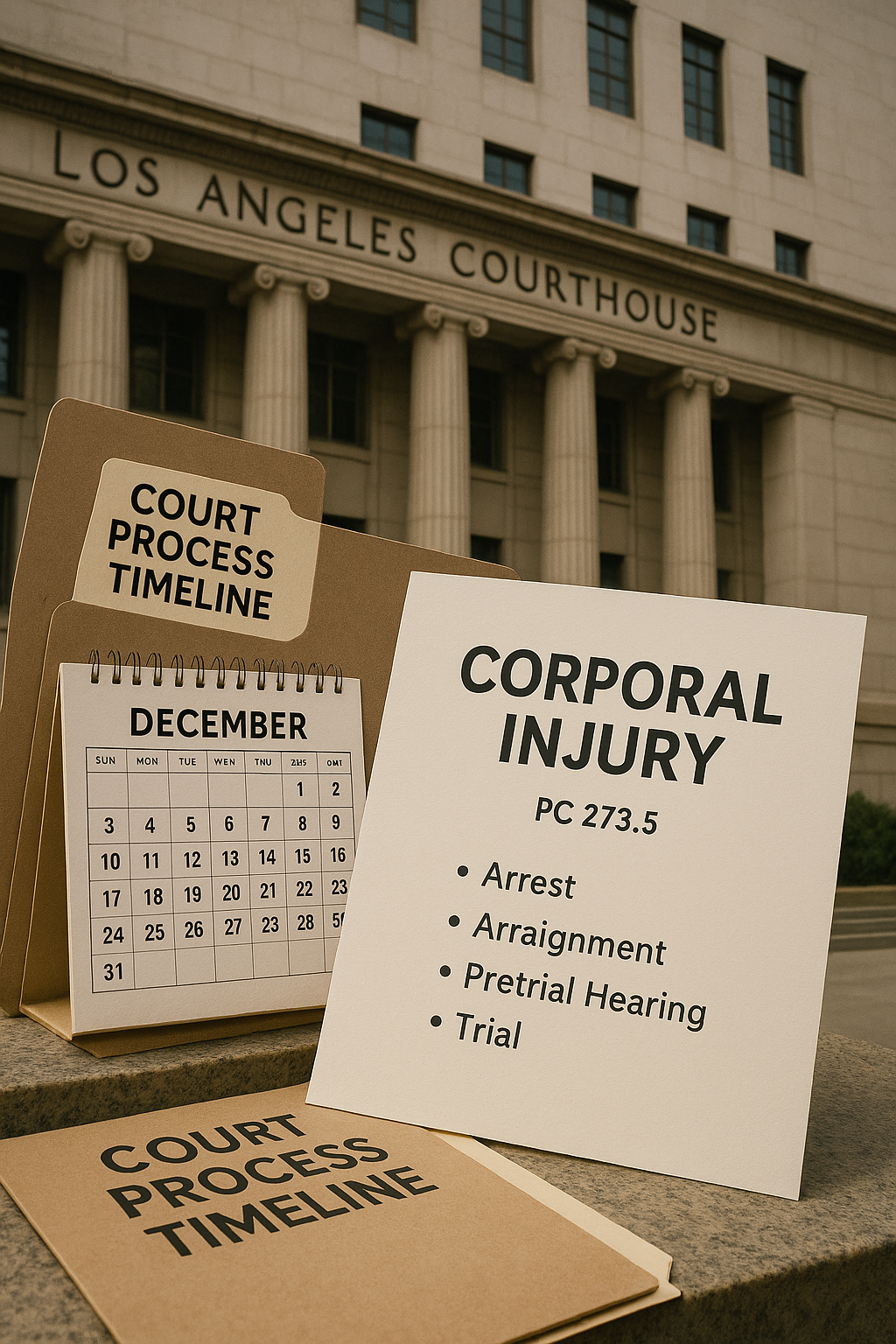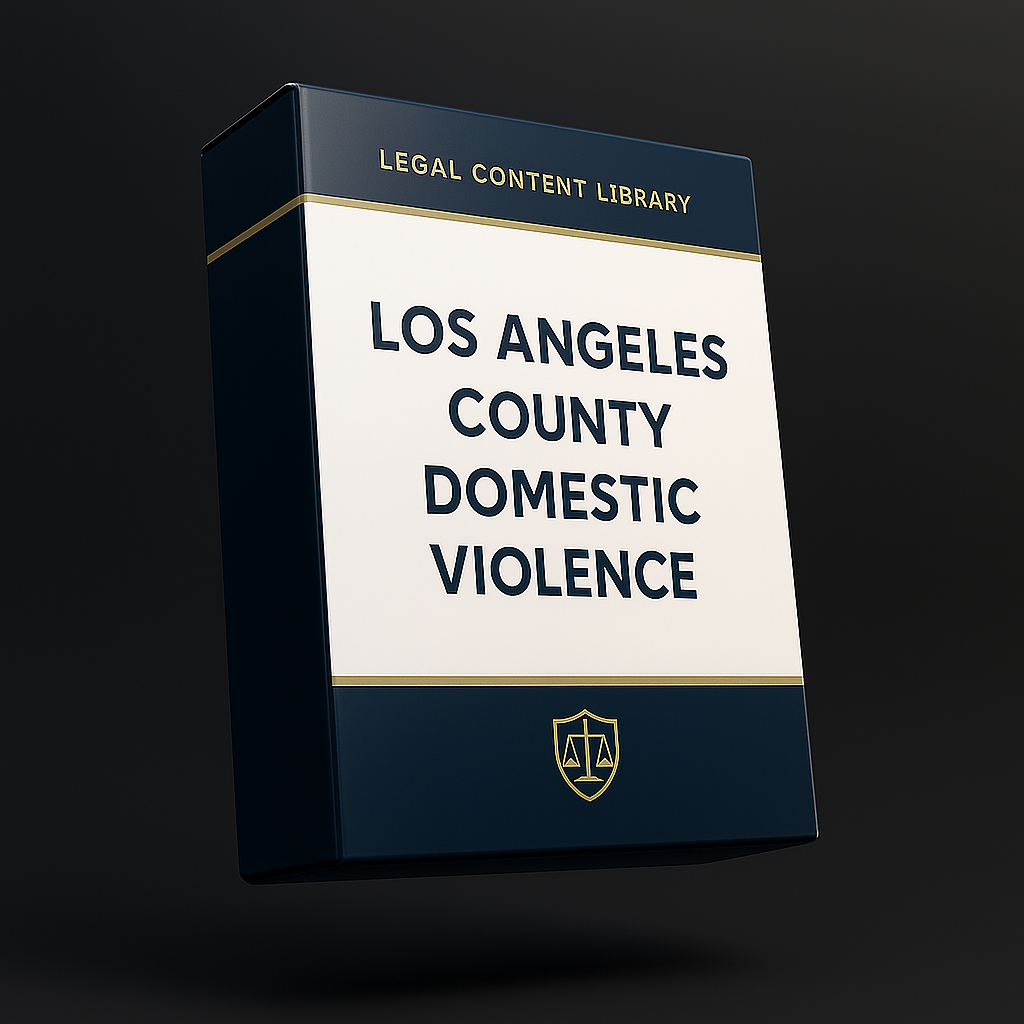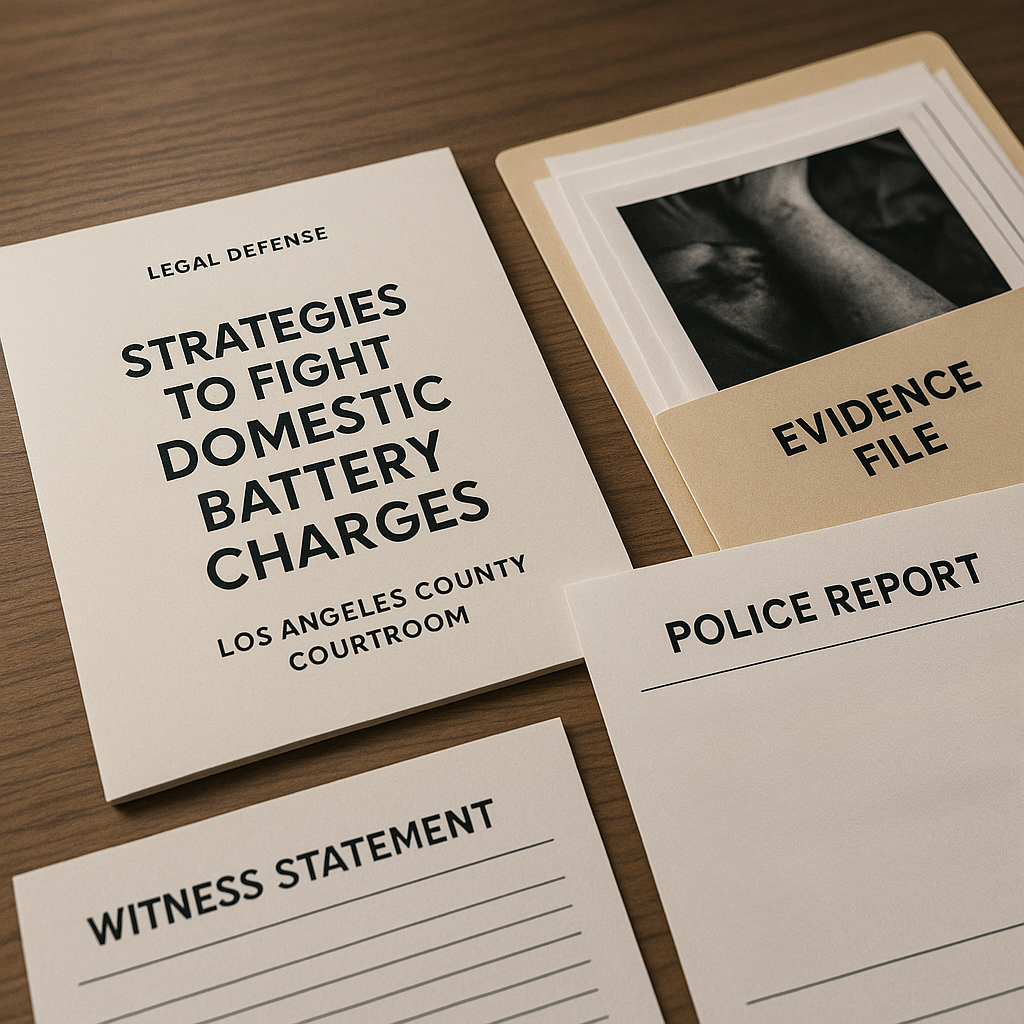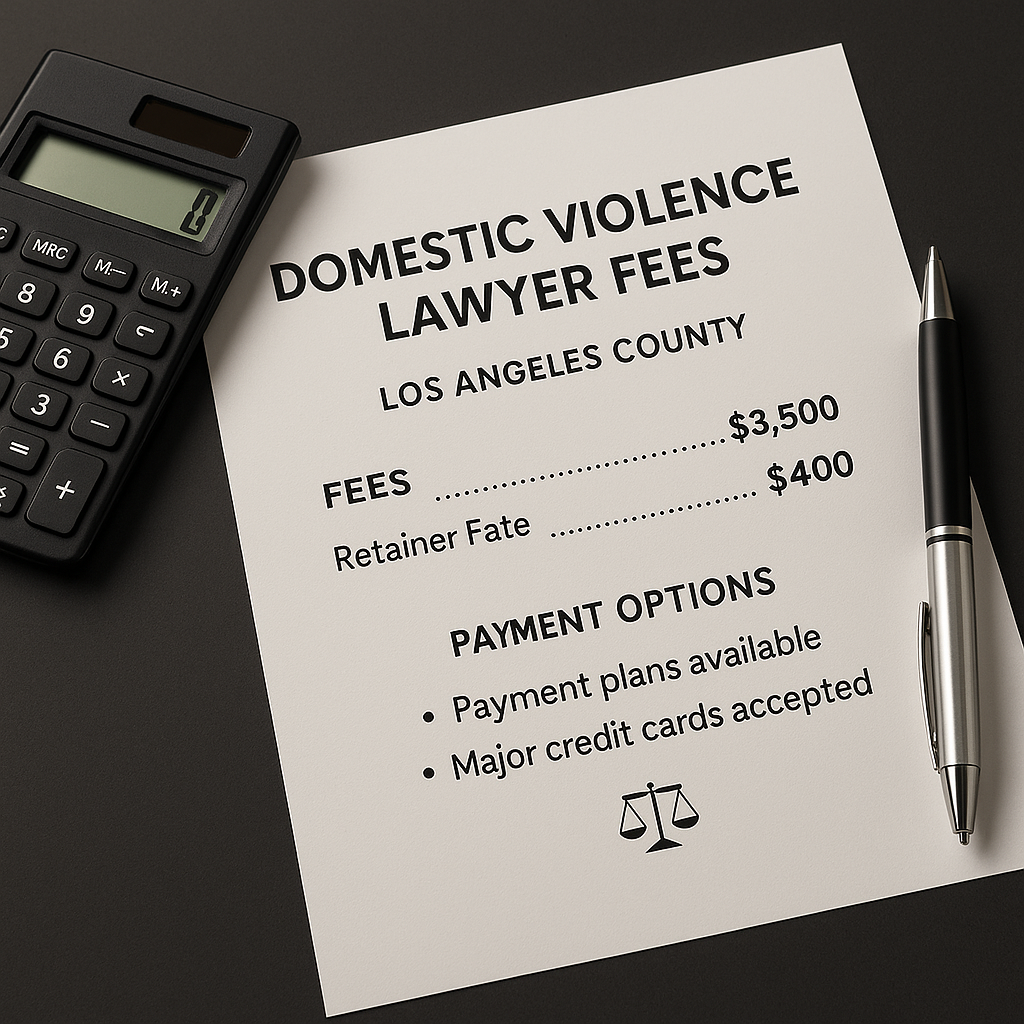How Long Does the Corporal Injury Court Process Take in Los Angeles County PC 273.5?
Quick Answer: The corporal injury court process PC 273.5 in Los Angeles County typically takes 6-18 months, progressing through arraignment, pre-trial conferences, plea negotiations, and potentially trial if no agreement is reached.
How Long Will Your Case Actually Take?
If you're facing corporal injury charges under PC 273.5 in Los Angeles County, you're probably wondering how long this legal process will consume your life. The answer depends on several factors, but most cases follow a predictable timeline.
Your case will move through distinct phases: arraignment, pre-trial conferences, plea negotiations, and potentially trial. Most PC 273.5 cases resolve through plea agreements within 6-12 months, though complex cases or those proceeding to trial can extend to 18+ months or longer.
Understanding this timeline helps you plan your life, make informed decisions about plea offers, and prepare mentally for what lies ahead. The process provides multiple opportunities for resolution before trial, and your actions at each stage significantly impact the final outcome.
Each phase serves specific purposes and creates different opportunities for case resolution. Experienced attorneys use this timeline strategically to gather evidence, negotiate with prosecutors, and position cases for optimal outcomes.
What Determines How Long Your Specific Case Will Take?
Several factors influence whether your case resolves quickly or drags on for many months:
Case Complexity Factors:
- Severity of alleged injuries and circumstances
- Amount of evidence prosecutors must review
- Number of witnesses involved
- Need for expert testimony or medical evaluations
- Prior criminal history considerations
Court and Legal Factors:
- Court calendar congestion in your specific courthouse
- Prosecutor workload and office priorities
- Your attorney's caseload and preparation time
- Plea negotiation progress and settlement discussions
- Whether constitutional or evidentiary issues require resolution
Personal Decision Factors:
- Your willingness to accept plea offers versus demanding trial
- Time needed for you to complete counseling or other requirements
- Victim cooperation levels and their scheduling availability
- Your compliance with court orders and restraining order conditions
Most defendants want their cases resolved quickly, but rushing into poor plea agreements often creates worse long-term consequences than taking time for proper preparation and negotiation.
How Long Does Each Stage of the Process Take?
From Arrest to Arraignment (2-3 Weeks)
Your formal court process begins after police complete their investigation and prosecutors file charges. This initial period typically takes 2-3 weeks and includes:
Days 1-3: Police complete reports and submit to District Attorney Days 4-10: Prosecutor reviews evidence and determines specific charges
Days 7-21: Court schedules your arraignment hearing
During this time, you should hire an attorney and begin defense preparation. Any restraining orders issued at arrest remain in effect, and early preparation often determines your case's overall trajectory.
Arraignment to First Pre-Trial Conference (30-45 Days)
Your arraignment is a brief formal proceeding where charges are read and you enter a plea (almost always "not guilty" to preserve negotiation options). The court then schedules your first pre-trial conference within 30-45 days.
This period allows your attorney to begin evidence review, initial plea discussions with prosecutors, and case strategy development. You'll typically need to appear at arraignment but may not need to attend every subsequent pre-trial conference if represented by counsel.
Pre-Trial Conference Phase (3-6 Conferences Over 4-6 Months)
Most cases have 3-6 pre-trial conferences spaced 30-60 days apart before resolution. Each conference serves specific purposes:
First PTC (30-45 days after arraignment): Discovery status updates and initial plea discussions Second PTC (60-90 days after arraignment): Serious plea negotiations and evidence evaluation
Third PTC (90-120 days after arraignment): Final negotiations or trial date setting Additional PTCs: As needed for complex cases or continued negotiations
This phase is where most cases resolve through plea agreements. Your attorney uses this time for evidence challenges, witness interviews, and strategic negotiations with prosecutors.
Trial Preparation and Trial (4-6 Additional Months)
If plea negotiations fail, your case gets scheduled for trial, typically 4-6 months after the trial date is set. This extended timeline allows both sides to complete discovery, prepare witnesses, and develop trial strategies.
Actual trials for corporal injury cases typically last 3-5 days, including jury selection, evidence presentation, and deliberation. However, the preparation period is substantial and requires significant investment from your defense team.
Why Do Some Cases Take Much Longer?
While 6-18 months covers most cases, certain circumstances can extend the timeline significantly:
Complex Evidence Issues:
- Medical testimony requiring expert witness preparation
- Digital evidence requiring forensic analysis
- Multiple alleged incidents requiring separate investigation
- Constitutional challenges to evidence or police procedures
Scheduling and Administrative Delays:
- Court calendar backlogs, especially in busy courthouses
- Attorney scheduling conflicts requiring continuances
- Witness availability problems affecting trial dates
- Administrative errors requiring case rescheduling
Strategic Considerations:
- Waiting for victim cooperation levels to change
- Allowing time for completion of counseling programs
- Coordinating with related family court or civil proceedings
- Preparing for appeals if conviction seems likely
External Factors:
- Changes in prosecutor assignments affecting negotiations
- Victim relocation or cooperation changes
- New evidence discovery requiring case re-evaluation
- Simultaneous charges in other jurisdictions
Some defendants prefer longer timelines to complete beneficial programs, demonstrate rehabilitation, or allow emotions to cool before resolution.
How Can You Influence Your Case Timeline?
While you can't control court schedules or prosecutor decisions, several actions can impact how quickly your case resolves:
Actions That Speed Resolution:
- Hiring an experienced attorney immediately after arrest
- Complying strictly with all court orders and restraining order conditions
- Participating voluntarily in counseling or anger management programs
- Maintaining stable employment and demonstrating responsibility
- Providing requested documentation promptly to your attorney
Actions That Delay Resolution:
- Violating restraining orders or other court conditions
- Changing attorneys multiple times during the process
- Refusing reasonable plea offers without strategic justification
- Missing court appearances or failing to communicate with counsel
- Creating new legal problems while your case is pending
Strategic Timing Considerations:
- Sometimes delays benefit your case by allowing completion of beneficial programs
- Rushed plea agreements often have worse long-term consequences
- Taking time for thorough investigation may reveal defense opportunities
- Coordinating with related proceedings may improve overall outcomes
Your attorney should help you understand when speed serves your interests versus when patience creates better opportunities.
What Should You Expect at Each Stage?
Understanding what happens at each phase helps reduce anxiety and allows better preparation:
Arraignment Expectations:
- Brief formal proceeding (usually 5-10 minutes)
- Judge reads charges and explains constitutional rights
- "Not guilty" plea preserves all options for later negotiation
- Bail and restraining order conditions addressed
- Next court date scheduled
Pre-Trial Conference Expectations:
- Working sessions between attorneys and judge
- Most defendants don't need to appear if represented
- Progress updates on evidence review and negotiations
- Plea offer discussions and evaluation
- Motion hearings on evidence or procedural issues
Trial Preparation Expectations:
- Intensive preparation period lasting several months
- Witness interviews and expert witness retention
- Evidence review and trial strategy development
- Jury questionnaire preparation and witness lists
- Significant time investment from your defense team
Trial Week Expectations:
- Jury selection focusing on domestic violence attitudes
- Opening statements outlining each side's case theory
- Prosecution and defense evidence presentation
- Closing arguments and jury deliberation
- Verdict and potential sentencing
Most defendants find that understanding the process reduces anxiety and helps them make better decisions throughout their case.
How Should You Plan Your Life During This Timeline?
Corporal injury cases create significant life disruption beyond court appearances. Planning for these impacts helps you navigate the process while protecting your long-term interests:
Employment Planning:
- Inform employers of court date requirements early
- Document time off requests and maintain work performance
- Consider how potential conviction might affect your job
- Plan financially for possible income disruption
Housing and Family Considerations:
- Understand how restraining orders affect your living situation
- Plan for potential temporary housing needs
- Address childcare and custody issues proactively
- Maintain relationships while respecting court orders
Financial Planning:
- Budget for attorney fees, court costs, and potential fines
- Plan for possible loss of income during the process
- Consider costs of counseling or other required programs
- Prepare for potential restitution obligations
Mental Health and Support:
- Seek counseling or support groups for stress management
- Maintain healthy routines and relationships where possible
- Document positive activities and compliance with court orders
- Prepare mentally for various possible case outcomes
Demonstrating stability and responsibility throughout the process often influences plea negotiations and sentencing decisions favorably.
When Should You Consider Different Resolution Options?
The timeline creates natural decision points for evaluating your options:
Early Resolution (First 3 Months):
- Prosecutors may offer better deals before investing significant time
- Early guilty pleas sometimes receive sentencing consideration
- Completing voluntary programs shows good faith and responsibility
- Quick resolution minimizes life disruption and uncertainty
Mid-Process Evaluation (3-6 Months):
- Evidence review is complete, allowing realistic case assessment
- Plea negotiations have developed, showing prosecutor's bottom line
- Trial preparation costs and risks become clearer
- Personal circumstances may have changed affecting decision-making
Pre-Trial Decision Point (6+ Months):
- Final opportunity for negotiated resolution before trial
- Trial risks and preparation costs are fully apparent
- All evidence and witness issues have been identified
- Long-term consequences of various options are clear
Your attorney should help you evaluate these options based on evidence strength, personal circumstances, and long-term consequences rather than just timeline preferences.
What Questions Should You Ask Your Attorney About Timeline?
Understanding your specific case timeline requires ongoing communication with your attorney:
Case-Specific Timeline Questions:
- What factors might make my case take longer or shorter than average?
- How does the evidence strength affect probable timeline and outcomes?
- What are realistic expectations for plea negotiations in my situation?
- How might my personal circumstances affect case timing and strategy?
Strategic Planning Questions:
- What are the advantages and disadvantages of quick resolution versus taking time?
- How might completing certain programs affect plea negotiations and timing?
- What preparation is needed if my case goes to trial?
- How should I plan my life and finances during this process?
Decision-Making Questions:
- What plea offers might become available at different timeline stages?
- How do trial risks compare to various plea agreement options?
- What long-term consequences should influence my timing decisions?
- How might delays affect my employment, housing, or family situation?
Regular communication with your attorney helps you make informed decisions and reduces uncertainty throughout the process.
Your Next Steps for Managing the Timeline
Understanding how long the corporal injury court process takes helps you plan appropriately and make informed decisions. Don't wait until the last minute to prepare for each stage of your case.
Immediate Priorities:
- Hire an experienced corporal injury defense attorney immediately
- Comply strictly with all restraining order and bail conditions
- Begin gathering character references and employment documentation
- Consider voluntary enrollment in counseling or anger management programs
- Prepare financially for potential legal costs and extended timeline
Ongoing Timeline Management:
- Maintain regular communication with your attorney about case progress
- Plan work and personal schedules around court date requirements
- Document positive activities and compliance throughout the process
- Stay informed about plea negotiation developments and options
- Prepare mentally and practically for various possible outcomes
Time works both for and against you in corporal injury cases. Early preparation and strategic decision-making often lead to better outcomes, while delays and poor choices can limit your options as the case progresses.
Most clients find that understanding the timeline reduces anxiety and helps them make better decisions about plea offers, trial preparation, and long-term planning. The court process may seem overwhelming initially, but experienced guidance makes it manageable and helps you achieve the best possible resolution within a reasonable timeframe.
Frequently Asked Questions About PC 273.5 Case Timelines
Q: How long does the entire corporal injury court process typically take in LA County?
A: Most PC 273.5 cases resolve within 6-12 months through plea agreements, though complex cases or those going to trial can take 18+ months to fully resolve.
Q: Can I speed up my case timeline if I want to resolve it quickly?
A: While you can't control court schedules, hiring an attorney immediately, complying with all court orders, and considering reasonable plea offers can help your case move more efficiently.
Q: Why do some corporal injury cases take much longer than others?
A: Case complexity, evidence issues, court calendar congestion, plea negotiation progress, and whether the case goes to trial all significantly impact timeline length.
Q: Do I have to appear at every court date during this long process?
A: If you have an attorney, you typically don't need to appear at routine pre-trial conferences unless specifically required by the judge for important hearings.
Q: What happens if I violate court orders during this extended timeline?
A: Restraining order violations or other court order violations result in additional charges and often increase bail or result in custody, significantly extending and complicating your case timeline.
Ready to navigate your corporal injury case timeline successfully? Contact our experienced Los Angeles County PC 273.5 defense attorneys for guidance through every stage of your case and realistic timeline expectations based on your specific circumstances.

.webp)



